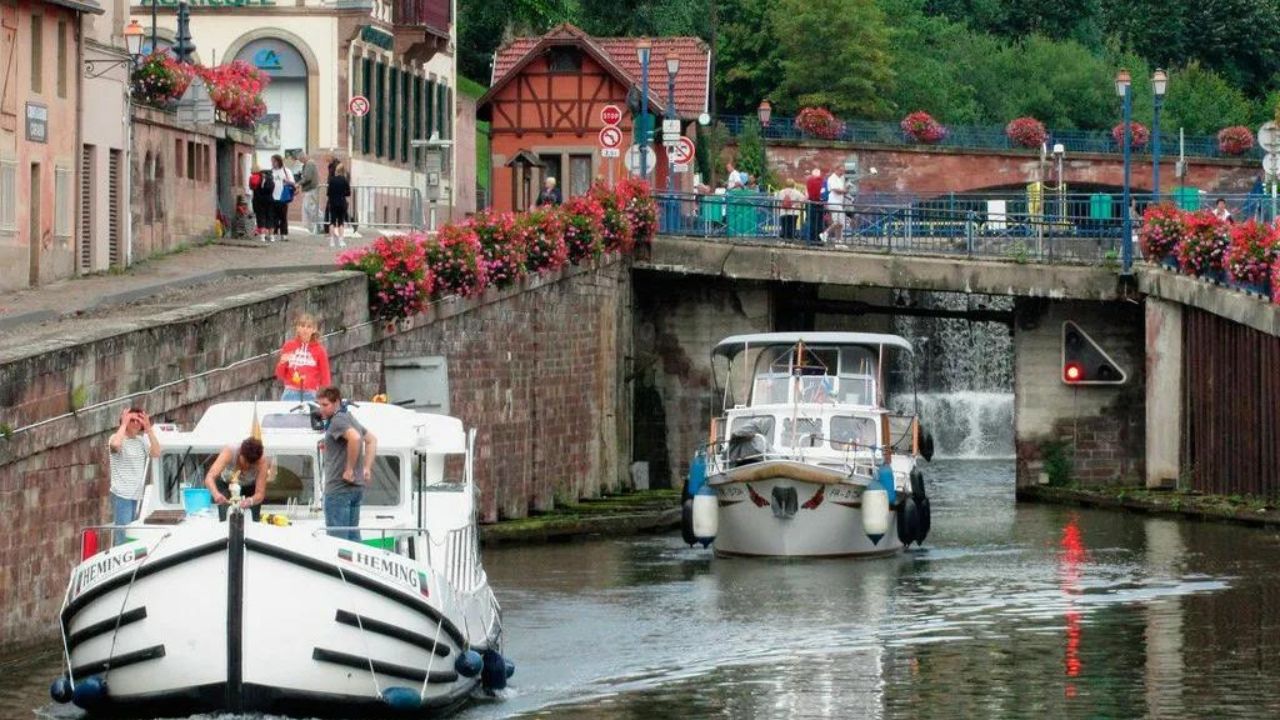France, renowned for its rich culture, exquisite cuisine, and iconic landmarks, attracts millions of tourists from around the globe each year. American travelers, in particular, are drawn to the charm of France, but navigating the intricacies of French culture can sometimes be a challenge. In this comprehensive guide, we’ll explore how the French treat American tourists and provide valuable insights to ensure a pleasant and memorable experience.
France holds a special place in the hearts of many travelers, with its romantic streets, historic monuments, and world-class cuisine. However, for American tourists, adapting to French customs and etiquette can be a bit daunting at first. Understanding the cultural nuances is essential to fostering positive interactions and enjoying all that France has to offer.
Cultural Norms in France
In France, politeness and formality are paramount. Greetings with “Bonjour” and “Merci” are customary. Speaking French, american things the french love, even basic phrases is appreciated. The French value art and history highly. Showing genuine interest in their culture fosters positive interactions with locals.
Politeness and Formality: French society places a high value on politeness and formalities. Addressing people with “Bonjour” (good morning) or “Bonsoir” (good evening) is customary, especially when entering shops or restaurants. Using “s’il vous plaît” (please) and “merci” (thank you) demonstrates respect and is greatly appreciated.
Importance of Speaking French: While many French people speak English, making an effort to speak French, even if it’s just a few phrases, is highly regarded. Learning basic greetings and phrases can go a long way in establishing rapport with locals and showing appreciation for their language and culture.
Appreciation for Art and History: France boasts a rich cultural heritage, with world-renowned museums, galleries, and historical sites. Showing genuine interest in French art and history is often met with enthusiasm and can lead to engaging conversations with locals.
French Cuisine and Dining Etiquette
French cuisine is renowned for its elegance and flavor. Dining etiquette is important; wait to be seated, say “Bonjour” upon entering, and dress neatly. Traditional meals often include multiple courses. Tipping is not obligatory but a small tip for good service is appreciated.
Traditional French Meals: Dining in France is a delightful experience, with an emphasis on quality ingredients and culinary mastery. Understanding the structure of a traditional French meal, which typically includes multiple courses such as appetizers, main courses, and desserts, can help American tourists navigate restaurant menus with confidence.
Expectations in Restaurants: French restaurants have their unique customs and etiquette. It’s customary to wait to be seated by the host or hostess and to avoid rushing through meals. Additionally, splitting the bill is not common practice in France, so it’s important to clarify payment arrangements beforehand.
Tipping Practices: Unlike in some other countries, tipping in France is not obligatory, as service charges are often included in the bill. However, leaving a small tip as a gesture of appreciation for excellent service is always welcomed.
Navigating Transportation in France
Navigating transportation in France is efficient and convenient. The country boasts an extensive network of trains, buses, and metros. Purchasing tickets in advance, anti-americanism in france, especially for long-distance travel, is advisable. Understanding the different transportation options helps travelers explore cities and regions with ease.
Public Transportation Systems: France boasts an extensive and efficient public transportation network, including trains, buses, and metros. Familiarizing oneself with the various transportation options can make getting around cities and regions much easier.
Tips for Using Trains and Buses: When using trains in France, it’s advisable to purchase tickets in advance, especially for long-distance travel. For shorter journeys, buses and trams are convenient options, with ticket kiosks available at most stops.
Interacting with Locals
Interacting with locals in France can enhance your travel experience. Learning a few basic French phrases like “Bonjour” (hello) and “Merci” (thank you) can go a long way. French people appreciate direct communication and meaningful conversations, so don’t be afraid to engage with them.
Common Phrases in French: Learning a few key phrases in French can enhance interactions with locals and demonstrate respect for their language. Simple greetings such as “Bonjour” and “Merci” can go a long way in making a positive impression.
How to Approach Conversations: French people appreciate direct communication and value meaningful conversations. Engaging in discussions about shared interests, such as food, art, or culture, can help forge connections with locals and enrich the travel experience.
Visiting Tourist Attractions
Visiting tourist attractions in France offers a glimpse into the country’s rich history and culture. From iconic landmarks like the Eiffel Tower to historical sites like the Louvre Museum, there’s something for everyone. Planning visits in advance can help avoid crowds and make the most of your time.
Popular Destinations in France: From the iconic Eiffel Tower in Paris to the sun-kissed beaches of the French Riviera, american stereotypes in france. France offers a myriad of attractions to suit every traveler’s interests. Planning visits to popular landmarks in advance can help avoid crowds and long queues.
Cultural Sensitivity When Visiting Landmarks: Respecting the historical significance and cultural importance of landmarks is essential when visiting tourist attractions in France. Following posted rules and guidelines, such as refraining from flash photography in museums, shows consideration for both the sites and fellow visitors.
Shopping and Markets
Exploring French markets and shopping districts is a delightful experience. From bustling outdoor markets to chic boutiques, there’s something for every shopper. Greet vendors with a friendly “Bonjour” and be prepared to haggle, especially at flea markets. Don’t forget to sample local delicacies along the way!
Etiquette in French Markets: French markets are vibrant hubs of activity, offering fresh produce, artisanal goods, and local delicacies. When browsing markets, it’s polite to greet vendors with a friendly “Bonjour” and to handle products with care.
Bargaining Practices: While bargaining is not common in French markets, there may be some room for negotiation, especially when purchasing multiple items or shopping at flea markets. However, it’s important to approach bargaining with tact and respect.
French Gestures and Body Language
French gestures and body language are key to effective communication. French people often use gestures to emphasize points or express emotions. For example, shrugging shoulders may indicate indifference, while raising eyebrows can convey surprise or skepticism. Paying attention to these cues enhances interaction with locals.
Importance of Non-verbal Communication: In addition to spoken language, non-verbal cues play a significant role in French communication. Paying attention to gestures, facial expressions, and body language can help American tourists better understand and connect with locals.
Common Gestures and Their Meanings: Hand gestures are often used in French conversation to emphasize points or convey emotions. For example, shrugging shoulders may indicate indifference, while raising eyebrows can express surprise or skepticism.
Accommodation Tips
Finding accommodation in France is essential for a comfortable stay. Options range from luxury hotels to charming bed and breakfasts. Booking in advance is advisable, especially during peak tourist seasons. Be sure to check for any specific requirements or policies, such as minimum stay durations or check-in times, to ensure a smooth experience.
Types of Accommodations Available: From luxury hotels to charming bed and breakfasts, France offers a wide range of accommodation options to suit every budget and preference. Researching and booking accommodations in advance ensures a comfortable stay during your travels.
Booking and Check-in Procedures: When booking accommodations in France, it’s important to check for any specific requirements or policies, such as minimum stay durations or check-in times. Arriving on time and adhering to hotel guidelines shows consideration for staff and fellow guests.
Dealing with Emergencies
Dealing with emergencies in France requires knowing the local emergency numbers, such as 112 for general emergencies and 15 for medical assistance. Promptly reporting emergencies ensures timely assistance from authorities and medical personnel. Additionally, having adequate medical insurance coverage is essential for peace of mind during your travels.
Emergency Numbers in France: In case of emergencies, knowing the local emergency numbers, such as 112 for general emergencies and 15 for medical assistance, is crucial. Promptly reporting emergencies ensures timely assistance from authorities and medical personnel.
Medical Services and Insurance: Travelers to France should ensure they have adequate medical insurance coverage for the duration of their stay. Familiarizing oneself with local medical facilities and pharmacies can also be helpful in case of illness or injury.
Respecting French Customs and Traditions
Respecting French customs and traditions is essential for a positive travel experience. From celebrating festivals like Bastille Day to adhering to dress codes at cultural landmarks, understanding and embracing local customs fosters mutual respect. Whether dining in a restaurant or attending a social event, adhering to etiquette shows appreciation for French culture.
Celebrations and Festivals: France is known for its lively celebrations and cultural festivals throughout the year. Participating in local festivities, such as Bastille Day celebrations or wine festivals, provides valuable insights into French traditions and customs.
Dress Code Expectations: French fashion is synonymous with style and sophistication, and locals often take pride in their appearance. Dressing neatly and appropriately for various occasions, whether dining at a restaurant or visiting a museum, shows respect for French customs and traditions.
Appreciating French Art and Culture
Appreciating French art and culture is a highlight of any visit to France. From world-class museums like the Louvre to vibrant street performances, is france friendly to foreigners, there’s something for every art enthusiast. Exploring galleries, attending cultural events, and immersing oneself in the local art scene offers unforgettable experiences.
Museums and Galleries: France boasts some of the world’s most renowned museums and art galleries, showcasing priceless treasures and masterpieces. Taking the time to explore these cultural institutions allows American tourists to gain a deeper appreciation for French art and history.
Attending Cultural Events: From classical concerts to avant-garde theater productions, France offers a diverse array of cultural events and performances. Checking local event listings and attending performances enriches the travel experience and fosters cultural exchange.
Day-to-Day Etiquette
Day-to-day etiquette in France revolves around courtesy and respect. Queuing patiently, using polite phrases like “Bonjour” and “Merci,” and adhering to local customs demonstrate consideration for others. Additionally, embracing environmental consciousness by recycling and minimizing waste aligns with French values of sustainability.
Queueing and Waiting in Line: In France, queueing etiquette is taken seriously, with people generally respecting the order in which they arrive. Cutting in line or behaving impatiently is frowned upon and can lead to uncomfortable situations.
Recycling and Environmental Consciousness: France places a strong emphasis on environmental conservation and sustainability. American tourists can contribute to these efforts by recycling properly and minimizing their environmental footprint during their stay.
Tips for Solo Travelers
For solo travelers in France, safety and socializing are key considerations. Stay aware of your surroundings, especially in crowded areas, and trust your instincts. Engage with locals by joining group activities or striking up conversations, fostering connections, and enriching your travel experience.
Safety Precautions: While France is generally a safe destination for travelers, solo travelers need to exercise caution, especially in crowded tourist areas or at night. Staying aware of one’s surroundings and avoiding risky situations can help ensure a safe and enjoyable trip.
Socializing and Making Friends: Solo travel presents ample opportunities for meeting new people and making friends along the way. Joining group activities, how to spot an american in france, attending social events, and striking up conversations with fellow travelers and locals can lead to rewarding connections and memorable experiences.
Conclusion
Visiting France as an American tourist offers a wealth of opportunities for exploration, discovery, and cultural immersion. By understanding and respecting French customs, etiquette, and traditions, travelers can forge meaningful connections with locals, navigate unfamiliar situations with confidence, and create lasting memories of their time in this enchanting country.




